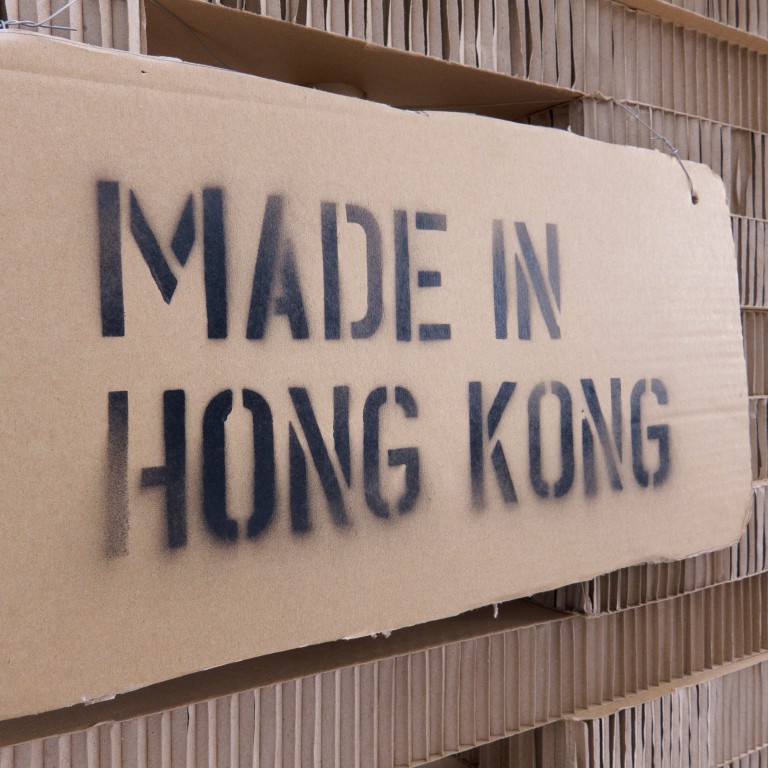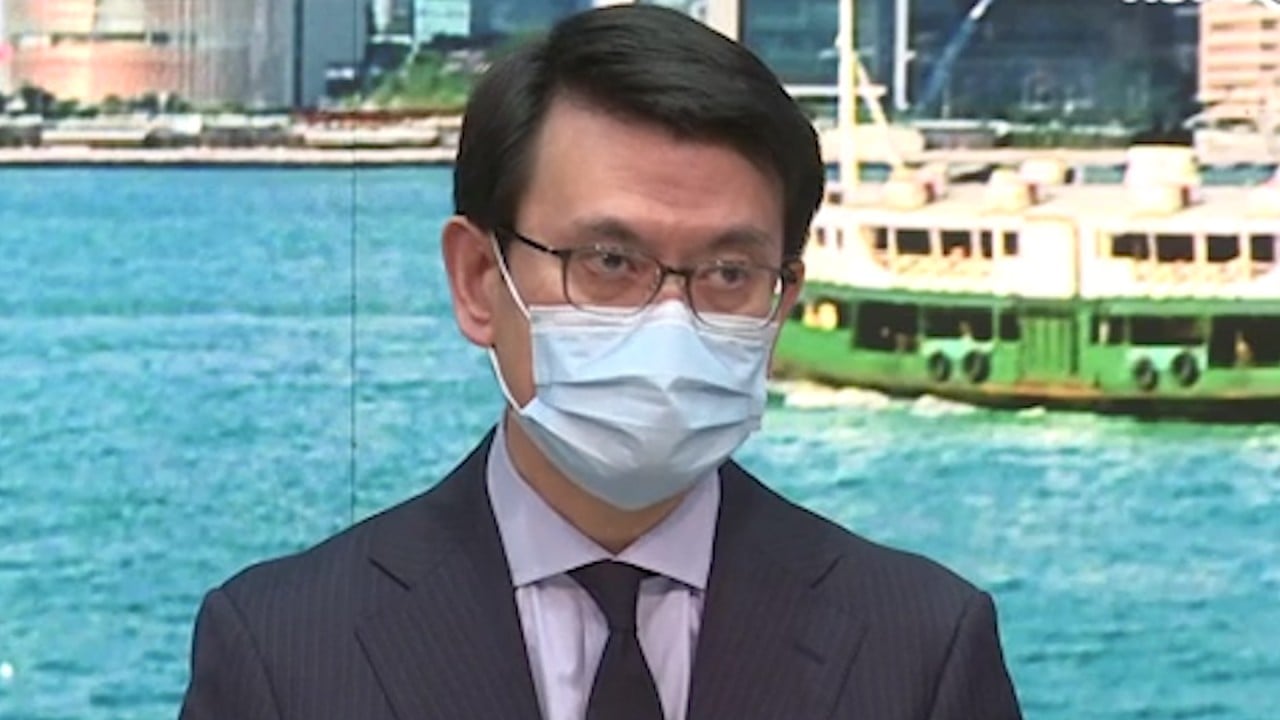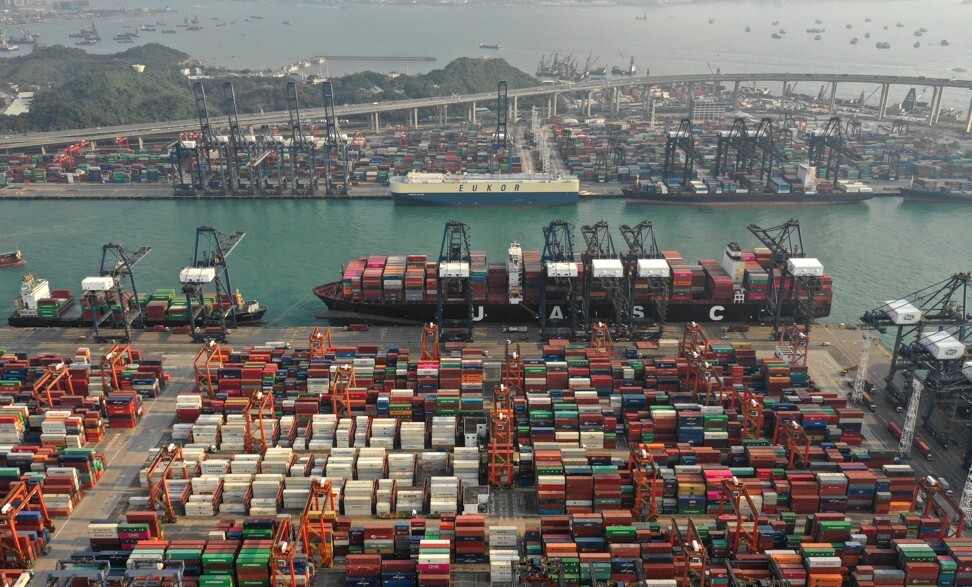
Hong Kong takes ‘Made in China’ label row with US to World Trade Organization
- The new labelling arrangement, which has been hotly protested, is due to take effect on November 10, Hong Kong time, days after the US election
- The move, part of an executive order by President Donald Trump, was designed to reflect Hong Kong’s status as ‘just another Chinese city’
Hong Kong formally launched legal procedures at the World Trade Organization’s dispute-settlement unit on Friday against the United States requirement for city-produced exports to be labelled “Made in China”.
Confirming a Post report, Secretary for Commerce and Economic Development Edward Yau Tang-wah said the lack of a substantive response from Washington to the Hong Kong government’s demands to withdraw the new regulation had forced officials to take the matter to the Geneva-headquartered institution.
It is the first time that Hong Kong has filed a complaint with the WTO directly against a fellow member since the city’s 1997 handover from Britain to China, according to Yau.
Hong Kong formally demands US drop ‘Made-in-China’ labelling requirement
“The US is unilaterally imposing this new requirement without any valid reasons, with blatant violations of WTO rules against Hong Kong. That is why we have to fight against the US under the WTO dispute-settlement mechanism,” he said.
“The US’ unilateral and irresponsible attempt to weaken Hong Kong’s status as a separate customs territory is highly inappropriate. Such a move also confuses the market and undermines the rules-based multilateral trading system.”
A source close to the WTO said “nothing had been received” by the organisation in relation to the Hong Kong complaint.
As part of US President Donald Trump’s executive order earlier this year terminating the special treatment the city enjoyed under the Hong Kong Policy Act of 1992, his administration stipulated local exporters relabel Hong Kong goods to reflect the city’s status as “just another Chinese city”.
That move was in response to Beijing’s decision to impose on Hong Kong a sweeping national security law, which came into force on June 30 and targets acts of secession, subversion, terrorism and collusion with foreign forces.
The upcoming vote has sparked uncertainty over the country’s future trade policy and attitude towards China. Trump has previously threatened to quit the global trade body on numerous occasions.

00:59
Hong Kong rejects US rule for ‘Made in China’ labels
Yau said such threats to leave the world’s most important multilateral trading organisation were not befitting of one of its largest members.
“I pick up the news saying, from time to time, that they [the US] may not necessarily stay in the WTO if some rules are not in their favour. I don’t think this is responsible,” he said.
It is also unclear how long it would take the body’s dispute-settlement unit to reach a verdict on the matter.
Yau said the US would have to respond to Hong Kong’s request to engage in dialogue on the issue within 10 days, and open those talks within 30 days.
If the two parties failed to come to a resolution through bilateral arbitration after 60 days, the Hong Kong government could request that the unit set up a panel to consider the dispute, the minister added.
Yau said if Washington did not change its mind over the label policy in time, Hong Kong exporters would have no choice but to follow the requirement.

“The amount of Hong Kong exports to the US is not significant, but consumers are confused about the label situation,” he said. “We can do nothing but follow the new rule unless we give up on the US market.”
Despite half of Hong Kong’s jewellery exports being sent to the US over the past few years, Do said that many city jewellery makers had turned their attention to other markets such as mainland China and Dubai.
The US is the second-largest destination for all Hong Kong-made goods, accounting for 7.7 per cent of the city’s total domestic exports in 2019, with the mainland being the biggest destination.
In 2019, Hong Kong exported US$471 million worth of locally produced goods to the US, most of which were jewellery, food, electronic goods and appliances.
Those shipments, however, accounted for just 0.1 per cent of the city’s total exports.
Additional reporting by Cannix Yau and Finbarr Bermingham


